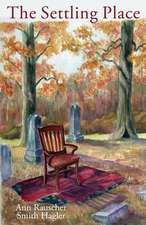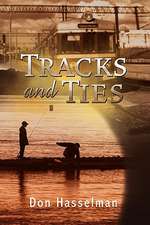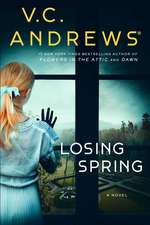Out of the Rain: The Umbrella series, cartea 2
Autor V.C. Andrewsen Limba Engleză Hardback – 3 mar 2022
After escaping the trauma of the Umbrella Lady’s home, thirteen-year-old Saffron Faith Anders is determined to find the father who abandoned her all those years ago. But when she finds him in a nearby town, Saffron is shocked to discover that he has married a woman he clearly had been involved with before her mother’s death. Worse, her father insists Saffron pretend to be his niece so he can continue to con his new wife’s family. Desperate for her father’s love, she goes along with the farce, but it soon becomes clear that perhaps it is better to face the world alone than trapped in a toxic and potentially dangerous family.
| Toate formatele și edițiile | Preț | Express |
|---|---|---|
| Paperback (1) | 95.64 lei 6-8 săpt. | |
| Gallery Books – 3 aug 2022 | 95.64 lei 6-8 săpt. | |
| Hardback (1) | 151.49 lei 3-5 săpt. | |
| Gallery Books – 3 mar 2022 | 151.49 lei 3-5 săpt. |
Preț: 151.49 lei
Nou
Puncte Express: 227
Preț estimativ în valută:
28.99€ • 31.48$ • 24.35£
28.99€ • 31.48$ • 24.35£
Carte disponibilă
Livrare economică 02-16 aprilie
Preluare comenzi: 021 569.72.76
Specificații
ISBN-13: 9781982156268
ISBN-10: 1982156260
Pagini: 304
Dimensiuni: 140 x 213 x 25 mm
Greutate: 0.41 kg
Editura: Gallery Books
Colecția Gallery Books
Seria The Umbrella series
ISBN-10: 1982156260
Pagini: 304
Dimensiuni: 140 x 213 x 25 mm
Greutate: 0.41 kg
Editura: Gallery Books
Colecția Gallery Books
Seria The Umbrella series
Notă biografică
One of the most popular authors of all time, V.C. Andrews has been a bestselling phenomenon since the publication of Flowers in the Attic, first in the renowned Dollanganger family series, which includes Petals on the Wind, If There Be Thorns, Seeds of Yesterday, and Garden of Shadows. The family saga continues with Christopher’s Diary: Secrets of Foxworth, Christopher’s Diary: Echoes of Dollanganger, and Secret Brother, as well as Beneath the Attic, Out of the Attic, and Shadows of Foxworth as part of the fortieth anniversary celebration. There are more than ninety V.C. Andrews novels, which have sold over 107 million copies worldwide and have been translated into more than twenty-five foreign languages. Andrews’s life story is told in The Woman Beyond the Attic. Join the conversation about the world of V.C. Andrews at Facebook.com/OfficialVCAndrews.
Descriere
Following the events of The Umbrella Lady, young Saffron Faith Anders searches for family and love in this spine-tingling gothic fairy tale from the bestselling author of the Flowers in the Attic series.
Extras
Chapter One
![]()
CHAPTER ONE
There were a little more than a dozen or so people on the last train leaving Hurley the night my grandmother Mazy died. Only two other people had gotten on with me, both strangers. We had but two stops before I would reach the town in which my father now lived a new life with a new family. By the time I stepped off the train, there was only one other passenger left, a young woman with light-brown hair. She resembled my mother, and so my imagination played its tricks on me. I imagined her turning and smiling at me, telling me I was doing the right thing.
Although I had never revealed it to Mazy, I had memorized the entire train schedule—where I could make connections to continue north, south, or west—because I didn’t know what my exact destination eventually would be until I found the secret letters my father had sent to her. However, the trip itself had always been out there, like a promise dangling. Maybe it was a fantasy most of the time, but I had believed that someday I would continue the journey to a new home and a new life, just as my father had done.
After I boarded and sat, no one gave me more than a passing glance before returning to his or her reading, texting, or sleeping. To everyone else, there was probably nothing unusual about my appearance, even though I felt like I was exploding with anticipation. My face felt on fire. I imagined that the excitement in my eyes had turned them into hot coals brightening and fading, brightening and fading with every breath and every heartbeat.
Why didn’t anyone else seem to see it?
Or did the sight of me upset them so much that they had to look away?
Although there was central lighting and anyone who wanted it had a light above his or her seat, darkness soon seemed to be seeping in like water into a sinking ship as the train continued on its route, every bolt, screw, and wheel locked in its predestined journey, just like me. It could never leave the tracks, it could never turn around before its final station, and it could never simply stop short of a set location. I had to go where it would lead me, and do what I had to do. Mazy had died.
The train whistle sounded. The future was out there, hovering like a hawk, waiting to pounce on me and take me to my fate. As the car rocked gently, soothingly, I could feel myself drifting back through time.
The moment I closed my eyes, it was as if everything that had happened between my original train ride with my father and the current ride was truly imaginary. As long as I kept my eyes tightly shut, I could feel him sitting beside me, even smell the fragrance of his aftershave, despite how long ago that was. There are scents that are embedded forever in your memory. For me, his aftershave was one of them, though no odor was stronger than the painful, bitter smell of smoke coming from our house fire.
Despite all the years I had taken care of Mazy’s fireplace and sat with her in front of those dancing flames, they really never became comfortable, nor did the sharp pain in my lungs and heart diminish. Flames, no matter where I saw them, would always be frolicking in glee, even a tiny one on a birthday candle.
Daddy and I had said so little to each other on the train that day.
He had fallen asleep first. I could hear his soft inhales and exhales. Their rhythm was enough to help me fall asleep, too. I felt safe again. I had lived below bruised, angry clouds that rumbled long after the night of our tragedy. However, no one else, not even Daddy, seemed to hear them. The rumbling was there only for me, even if there wasn’t a cloud in the sky. I was trapped in the surrounding flames and deafened by the high-pitched scream constantly ringing in my ears. The moment I began to stand still, no matter where we were, I started to tremble. My lips felt like they were bubbling. I was living in a shell with spidery thin cracks that was threatening to shatter and fall at my feet, leaving me as naked and alone as a newborn abandoned in the cold, dark night.
Despite how calm I might have appeared to a stranger back then, inside, the real me was crying hysterically for my mother. When I looked at other people, I was surprised they didn’t hear it. They smiled at me, held my hand, and couched their words carefully in expressions of compassion and hope. Their assurances fell into distant echoes. How could everything ever again be all right? After a while, I didn’t hear them at all, just as they didn’t hear me. The whole world might as well have been deaf.
When Daddy had told me we were leaving to start a new life, I unashamedly felt joy. We were escaping from the darkness, maybe from those flames in my memory, too. Because I was so young, I had believed we would just go a little ways and every terrible thing that had occurred would disappear. I recall even thinking that maybe Mama would be waiting for us at our new place. That her survival of the house fire had been kept secret. That after we had stepped off the train, no matter where we were, she would be standing there waiting. The smile I remembered would be back where it belonged, nestled on her face, brightening her eyes and filling her lips. I’d rush into her arms, and the three of us would walk off into a scene as happy as the last scene of Alice in Wonderland. We’d be holding hands and laughing that everything horrible that had occurred was now only a bad dream. None of us had followed a rabbit down a hole. Everyone has bad dreams.
Why couldn’t that be true for me?
Couldn’t someone say, “You’re safely back in Kansas, Saffron?”
And so, when Daddy had left me at the Hurley train station, filling out figures in my new coloring book with new crayons, I had never doubted that he would come back for me after he had bought some of our necessities, and then we would take the next train to our new home. The speed with which he walked off, practically ran off, convinced me that he didn’t want to leave me alone for too long. I actually was proud at the start, delighted that he would consider me old enough to wait by myself in a strange place, even though I knew in my heart that my mother would be furious at him for doing so.
Thinking back to it now, I suspect that Mazy, the elderly lady who had appeared suddenly and would turn out to be my real grandmother, had deliberately waited until the train station was deserted and I was alone. If she had appeared earlier, while trains and people were still going to and fro, I would never have taken her hand and permitted her, a total stranger at the time, to lead me away to her home and her lonely life. Time, the realization that Daddy wasn’t returning for me, and the chill of darkness had to embrace me first.
After Mazy had taken me in and after days and then weeks had passed, I grew more skeptical of her true intentions, but she was very methodical, cleverly answering every one of my questions and seemingly honest about her efforts to reunite me with my father. She drove back my doubts almost as soon as they occurred.
Now, when I recall those early days, I realize that her experience and training as a grade-school teacher had enabled her to ease me into a new reality, with the main realization being that my father really had deserted me. She’d had to lower me into the truth the way a parent would lower her child into a very warm bath. Even so, what child could live with that revelation? Where could he or she ever find self-respect after having been discarded with maybe little more than an afterthought?
Daddy’s one saving grace was that everything had been prearranged, as heartbreaking as that was to realize. At least, I eventually learned that he didn’t out-and-out desert me and just leave me dangling in the unwelcoming night. Mazy had lost her daughter, my mother, when she had given her up for adoption practically the same moment she had been born, but she could and would enjoy her granddaughter. My father had kept in touch with her while his parents brought him and my mother up in the same home. They were supposed to be more like brother and sister, but they weren’t.
As the train carried me farther and farther away from Mazy and the life she had tried to make for me, I felt deep sadness for her and the pain she had kept hidden in her heart most of her life. Despite the way she had encouraged me to keep hoping my father would return for me, especially in the very beginning, I bore her no resentment and, in the end, blamed her for nothing. In a way, everything she had done to keep me isolated and protected was born out of her own guilt over giving up her daughter, despite how difficult it would have been for an unmarried woman to raise a child with no visible means of supporting herself at the time. That night when she led me to her house from the train station, she finally was doing what she wished she had done the first time around. I was to be her redeeming light. How could I fault her for that?
Mazy was possessive and domineering, for sure, but her intense need to weave her love and her worldly knowledge into me drove her to hover over me, spreading her wings like an angel, to be sure no one would harm me. She wanted to be certain that I’d be well prepared to do battle in this world, for that was how she saw it… filled with a constant series of challenges and conflicts. It had made her quite bitter. Countless times she told me that if I listened to her, I would be strong enough to survive and happily so. It got so I feared stepping out of the door on my own, even if simply to play in the backyard.
The proof that she had prepared me well lay just ahead in a whirlwind of what I expected would be major challenges even if I were older. Both mentally and physically exhausted from my stream of memories and all I had just done to effectuate a good and safe escape after Mazy had died, I welcomed the deep sleep that overtook me during the trip. Just as on that first train ride years ago, this train’s slowing and coming to a stop at the station I wanted was what woke me. When I sat up and looked out the window, I felt like an astronaut gazing out at a new planet.
The young woman I had imagined resembled my mother did not disembark, and when I walked by her and she looked at me, I saw she was nowhere near as pretty as my mother had been. Outside, there were no passengers waiting to board. The train lingered like a great beast catching its breath. Being alone on the train platform when I stepped off made it all seem more like a recurring dream. Was I really here?
This train station was cleaner and more up-to-date than the one I had left. I was both happy and angry that I didn’t have to travel too far, just a little over two and a half hours. I wondered whether my father had taken this exact trip in the opposite direction from time to time to catch sight of me. Was he ever on our street waiting for a glimpse of the little girl he had left behind? Did Mazy alert him ahead of time when we would be in the village so he could stand in some storefront and look at us passing by? I wanted to believe that. I wanted to imagine that he still harbored some love, some curiosity, and still possessed something of any father’s need to know his own child.
But I wasn’t completely convinced he would welcome me now with open arms. Before I had left, I had read all his secret letters to Mazy and looked at the pictures of my mother as a child and then as a woman, a mother herself, pictures he had sent to my grandmother. Even as a very young girl, I had spent hours and hours trying to understand why he would have deserted me in the first place. The letters explained so much, but most of what he had written had stunned me and left me cold. Now I suspected that he had been planning to transfer me into Mazy’s care for a long time, perhaps even before the fire. He had kept his intentions hidden that well. But even if there were clues, why would I have noticed and read into them back then?
Whom can you trust more than your own father and mother? Who did you least expect would betray you? There wasn’t a hint in his eyes or in his voice to warn me he was going to do just that on that fateful day. For so long, I had wondered why he didn’t want me with him. Buried deeply in my heart and mind was the realization that leaving me behind couldn’t only have been for the reason he had given to Mazy in his letters, his desire to repair her loss. But why would he make such a sacrifice for someone he barely had known? He had to have had other reasons. And besides, why ignore my losses and what the desertion would do to me? I read no lines of regret about that in those letters. There were no apologies to be given to me and no expressions of worry for my emotional well-being.
That only reinforced the dark places in my heart and the ugly answers hanging like bats in a cave, answers to questions that I had always fought against exploring. Wasn’t it Mazy who told me, “You never ask a question for which you don’t want an answer. There is much truth to the adage ‘Ignorance is bliss’?”?
None of this denied that my early life had its moments of sunshine, but mainly before my father and mother had become more like strangers to each other and my mother had fallen into a deep depression. Images and parts of sentences between them lingered in the air filled with static, all of it threatening to connect and then eventually force me to realize the truth, a truth a little girl my age was unable to face at the time. It meant that the bond between my mother and father, the bond that keeps a child feeling safe, was already shattered. Much of who and what they had become to each other had really gone up in smoke with that fire.
What was left of love and tenderness before the first spark leaped out? Where did the wind carry the ashes of all the anger and unhappiness? What greater horror lay in wait out there? What monster, uglier than any I could imagine, sneered and clawed the ground, anticipating its opportunity to seize me and destroy what little remained of faith and love? I would soon know.
Nightmares had become more like movie trailers, snippets of the terrifying reality that had my name across its forehead. But I had little choice. I had to head toward it like someone driving on a road that she knew would end at a cliff. How long would the fall take? Would there be anything left, any reason to continue? Perhaps that was the biggest, most pressing question of all. Even if I found a hint of love, it would pale in the presence of what had happened, what had been real and not imagined. Could I live with it? The simple questions that followed me off the train were: Did any of what I was hoping to find matter? Did family matter? Did everything Mazy had done for me matter under the shadow of all that?
Did knowing who you really were matter?
Was I in a different shell, and should I bother to emerge?
I almost turned around and crossed the platform to take a train going in the opposite direction. If I didn’t continue to go forward, would I never have to confront those answers? “Ignorance is bliss,” Mazy had told me, but could I really live on without knowing these answers? I feared how they would haunt me forever.
I stood there, indecisive. The train that had brought me started away. There was another choice. I was tempted to rush back on and continue into the unknown, go on and on. I felt like a deep-sea diver who, after she had jumped from the edge of a cliff, wondered in midair if she should have. But I didn’t return to the train.
No, I told myself, it’s far too late to change your mind, Saffron. Let yourself keep falling.
In the end, what kept me going wasn’t a young girl’s need for love or truth or justice. My motives weren’t that noble. Truthfully, where else could I go now? There were no family friends, no living relatives. I had a fake birth certificate, but what kind of a life could I have alone?
What had brought me here was just a brutal need to survive first and a hope for restoration of any family, any love, second. In no sense was I coming home, no matter how I wished and pretended I was. Living with Mazy had made it more difficult to lie to myself. Because she wouldn’t tolerate deception in any form, I found it distasteful, too.
I walked slowly off the train platform to a taxi parked nearby. The driver had his bushy, gray-haired head back and his mouth wide open, looking more like someone who had just died. He did resemble who I imagined to be someone’s grandpa driving a cab. Mazy once told me that older people show their age the most when they sleep. I thought about Shakespeare’s line in his sonnet about getting older, “Death’s second self.” Mazy had been amazed when I ruminated about it and I asked, “Isn’t every sleep a taste of what’s to come?”
That day, she had stared at me hard before she said the strangest thing.
“I’m sorry you’re so intelligent, Saffron. You’ll suffer more.”
“Should I stop reading?” I asked, terrified.
She laughed. “Not for an instant,” she said, smiling.
I tapped on the window, and the driver stirred, realized where he was and what was happening, and jumped up instantly.
He rolled his window down and said, “Hey. Sorry, missy.”
I gave him the address and got into the back of the taxi. The moment I did, he started to talk, beginning with why he had fallen asleep. I smiled to myself listening to how guilty he felt. If he had only known the forest of guilt through which I had come, he would laugh at his meager shame.
“This is the last train stoppin’ at Sandburg Creek,” he said. “Most of the time, no one gets off, or if they do, someone is waitin’ for ’em, but I can’t afford to miss a possible fare. Still, ya’d think a girl as young as you would have someone waitin’ for her. I tell ya, the risks parents take with their children in this day and age are astoundin’.”
I’m really not that young, I wanted to tell him. Your real age is inside you because of what life has done to you. But I didn’t want to get into any deep discussions. I was trembling.
“I have the last shift, so I see what goes on. Kids no older than you, and girls especially, are wanderin’ the streets in the early mornin’ hours. Who knows where they came from or where they’re goin’? Who’s checkin’ ta see if they ever came home? For a lot of ’em, I bet no one.
“I’m not married and don’t have no children, but it doesn’t take much ta realize that’s bad. So where ya been, missy?”
“Away,” I said, looking anxiously at the houses we were passing. They were bigger than the ones in Hurley, with more elaborate landscaping. The streets were wider, too. There were pruned medians and modernized, stronger lights, making the macadam glitter as if there was a thin layer of ice over them. Here and there were wooden benches.
It was still early enough in the evening for windows in all the homes to be well lit. Traffic was light in both directions. I saw people walking dogs and talking in the early evening. The taxi driver was right. Girls as young as I, if not younger, walked with older kids who poked and teased each other playfully. Others about my age were walking with their parents. It looked like a dream world, the idyllic community Mazy would describe as a painting by Norman Rockwell, her favorite artist. People were laughing and looked friendly in many of his pictures capturing rural scenes. Was this that world? Could there really be one? Was I too desperate to believe a place like this existed? I was afraid of hope. I knew too much disappointment.
“Ya live here in Sandburg Creek, right?” the driver asked. “Or are ya visitin’ someone?”
“I’m coming home,” I said. It was noncommittal enough for him to look at me in his rearview mirror.
“How long have ya been away?”
Was he writing a book? This was my first taxi ride. Were all taxi drivers this talkative and nosy? The silence in my hesitation was uncomfortable, even for me.
“A while,” I said. “I am in a private school,” I added, to hopefully shut him up. In a true sense, I had been in a private school with Mazy, not that it mattered too much to me that I might lie to a taxi driver.
“Oh. Well, welcome home,” he said, turning onto a new block.
I caught the house numbers. This was my father’s neighborhood. All the homes had good-size plots of land, so they weren’t on top of each other. They weren’t modern in style. Most of them were Queen Anne, more reason to believe I was in a Norman Rockwell painting. It felt as if I had dropped through time to a place where people might still leave their houses and cars unlocked. Strangers were people to be curious about and not to be suspected of some evil intention. Lights that looked like candles flickered in windows. Maybe mothers and fathers were with their children watching television, the way Mazy and I had done. Perhaps that was what my father was doing right at this moment, never dreaming he would be seeing me in his doorway.
Now that I was really going to ring his doorbell, what really made me tremble inside was the idea not only of confronting him but of meeting his new wife and his new children. I finally faced the thought, the frightening thought, that I had a new family. What would they see when they looked at me? How much did they know? I wasn’t just carrying some of my clothes in a small bag; I was bringing along a horrific past. The flames would be snapping and crackling right beside me. Maybe he had told them that I had died in the fire, too. When he and his family saw me, they might all chant it together: “You can’t come here; you don’t belong here. You’re dead; you’re gone, forgotten.”
They would probably be more frightened of me than I of them.
If so, where did I belong now? Would I join the homeless whom Mazy and I had seen on television news? Would I live in shadows, covered in the filth of the street? Would I die in some alley like a scrawny cat, scratching at the approaching image of death with its smile full of sharp, yellow teeth and its eyes swimming with cold glee? In a few more minutes, my whole life would be decided.
Dare I breathe?
As the taxi began slowing down, I wondered if I ever could be more terrified and my body ever be more frozen in fear than it was at this moment.
We stopped in front of one of the larger houses. It was a brick three-story with a veranda and an octagonal extension on the right and a three-story octagonal tower on the left. A half dozen matching brick steps led up to the front entrance at the center of the house’s wide veranda. My father’s home was easily almost three times the size of Mazy’s house. Even though there was no one on the veranda, it was well lit. The lawn looked more like a rich, dark pool of green soaking in the light. Well-pruned roses grew close to the veranda, hugging its shadows. On the right was a dark-pewter fountain with a sculptured little boy and girl under an umbrella off which the water flowed back into the bowl.
An umbrella, I thought, remembering the first time I had seen Mazy with hers and how she wouldn’t walk out of the house without it, rain or shine. I would never look at one, even in a picture, without thinking of her immediately.
“Wow. Nice house,” the driver said. “Yer family live here long? What’s yer father do? Is he a doctor or somethin’?”
“How much?” I replied, as if I hadn’t heard a word.
“Nine fifty will do it.”
I gave him a ten and opened the door slowly.
“Say,” he said. “Really. How come nobody met ya at the station?”
“I’m not supposed to be here yet,” I said, smiling. Lies as tools, I thought, remembering how Daddy once had explained why sometimes a lie was okay. “It’s a surprise.”
“Oh. Gotcha.”
I closed the door before he could ask anything else. He watched me in his rearview mirror until I walked around and started down the cobblestone walkway to the stairs. He didn’t drive off until I was nearly there. I could hear the television in the house, some comedy show with its usual canned laughter. Visions of Mazy smiling when she and I had sat together to watch television gave me some courage.
You’re his daughter, I thought. You’re his daughter, I chanted to myself. He can’t turn you away.
But what would he do? a little voice inside whispered. He turned you away once, didn’t he?
As soon as I stepped onto the stairway, another light came on above it, a motion detector. I felt like I had stepped into a spotlight. For a moment it blinded me, and I seriously considered turning around and rushing away. My heart was pounding. I tightened my grip on my shoulder purse and simply stood there, unable to take another step.
But before I could change my mind, I realized that the burst of light had alerted someone inside. There was a rush of footsteps, and then the front door opened.
For a few moments the expression on my father’s face said he didn’t recognize me, but that quickly fell away to be replaced by his shock and even fear the moment he did. He looked unable to move, unable to swallow, and even unable to blink. He had gotten older, his face rounder, softer. He was no longer his svelte, athletic self. He had a bit of a potbelly. Maybe it was just the veranda light, but it appeared that he had some gray at his temples. The hair he had mourned losing years ago had only receded more. Perhaps to deny what was happening, he had let his sides grow thicker and the back grow longer. His white shirt was gathered at his waist, some of it sticking out. My father had never looked this disheveled. Actually, he looked like he had just been wakened.
“Who is it, Derick?” we heard a woman cry from inside.
He stepped closer, his eyelids narrowing.
“Saffron?” he said. Just hearing him say my name began to defrost the icy fear in my body.
“Yes, Daddy,” I said.
“Derick?” we heard.
“Just a minute, Ava,” he shouted back, and closed the door behind him.
I almost retreated in fear when he moved us to the edge of the veranda so quickly.
“What are you doing here?” he asked. Fortunately, he sounded more curious than angry.
“Mazy died,” I said. Even in the yellow-tinted light, I saw his face whiten.
“Died?”
“I found your letters to her. I know everything about you and Mama and why Mazy is my real grandmother. I have money she left me. I called someone, a nurse friend, to go to her house and take care of her body and her cat. Then I got on the train. No one knows I’ve come here. No one back there knows anything. I threw the letters in the garbage before I left.”
I rattled it all off in one breath, hoping it would be enough to convince him it was safe to love me again.
His eyes seemed to roll in his head as he digested what I was saying and sifted through his mind to find some way to deal with what confronted him.
“Listen, listen,” he said, coming down the steps and reaching into his pocket as he did so. He took out a wad of money. “Go down the block and turn right. Go two blocks and turn left. Two blocks later, you’re in the downtown area, and there’s a hotel on the right called the Dew Drop Inn. It’s more of a motel, but the rooms are okay. I’ll call ahead so they’ll be expecting you. We’re part owners of it.”
“Part owners?”
“I’ll explain it all tomorrow. Check in, get something to eat, and go to sleep. I’ll meet you first thing in the morning.”
He shoved the money into my hand.
“I have money.”
I wanted to add that wasn’t why I’d come, but he did look frantic.
“Don’t worry. We’ll talk about how to do this,” he said.
“Do what?”
“Just go. Do what I say. We’ll work out everything. Check in to the hotel. I’ll make a call so you’ll be expected. There won’t be any problem.”
He glanced nervously back at the front door.
“Go ahead.”
“If I check in, I’ll be using my new name. Mazy had a birth certificate created for me,” I warned. I was hoping that would upset him, but he nodded, close to smiling.
“Saffron Dazy. I know. It’ll be all right. That’s perfect. Just go.” He looked poised to shoo me off like a fly.
I hesitated. That’s perfect? His name and mine had been sliced apart. Wasn’t he even going to hug me? I glanced past him at the front door, and then, when he didn’t move toward me, I turned and walked to the sidewalk. He watched me for a few moments and then hurriedly went into the house.
I thought I heard the door lock. The motion light went off. It was as if a curtain had closed.
I continued walking through what felt like a fog, not really looking at, seeing, or hearing anything. This was what I had feared, this feeling of being in limbo, floating, dangling. Suddenly, the streets were so quiet, with hardly any traffic. I felt as if everyone and everything around me were pausing to watch me walk alone. I caught glimpses of families through the warm light of their front windows. Somewhere off to the left, a dog began barking. The barking grew softer, lower, as I walked faster. When I made the turns he had described, I saw the Dew Drop Inn sign ahead in a purplish blue light. I paused.
Why not keep going? I thought. I had enough money for a while. Maybe I should find a bus station rather than return to the train station. But if I did, what could I possibly do? I couldn’t get a job. I’d be that girl of the streets I had envisioned on my way here. Any other girl in my place surely would be terrified and crying by now. Her father had just sent her away a second time. I credited Mazy for my stoic attitude and strength. She had raised me to be strong.
I walked on. Practically indifferent to where I was going and what I was being forced to do, I entered the small, brightly lit lobby with pale yellow walls and black-framed windows. Posted rules and regulations and No Smoking signs were scattered about. A short, elderly man with bushy gray eyebrows and an almost childlike body, small hands, and light-brown hair, still quite thick, stood up instantly and smiled. His thin pink lips seemed stretched to the point of snapping, losing their color, too. He obviously wanted to make a good impression. What had Daddy told him about me?
“Saffron Dazy?” he said.
“Yes.”
“Everything’s arranged.” He brought a key on a small chain with a Dew Drop Inn blue plastic tab to the counter. “Got my nicest room for you, twenty-one A. You just go out, walk to the left, go down the short walk, and it’s the first door on the left.”
He pumped the key at me until I took it.
“There are bottles of fresh water in your room in the minibar in the dresser. There’s an extra blanket and pillow in the closet. If you want something to eat, you’ll find a Birdie’s menu right next to the phone.” He smiled again. “My son owns Birdie’s. Great pizza. They deliver,” he quickly added. “Don’t worry about expense. Everything’s taken care of. Anything else you think you might need?”
A life, I wanted to say, but instead shook my head.
“Don’t I have to sign anything?”
People always did that in movies.
“No, no. I know your uncle for a long time. He explained everything.”
I stared. Did I hear him correctly? My uncle? Explained what? I was afraid to ask.
He smiled again.
“You just hit zero on the phone if you need anything,” he said. My silence unnerved him, I guess. He had to keep talking. “I’m on alone all night tonight, or I’d show you to your room. We’re not too busy today, but we do get busy on the weekends. Lots of hikers, and the lake still offers great fishing. Fed by a natural spring. People rent rowboats, have picnics. They come from hundreds of miles, some of them.”
I was simply staring at him, or through him, really. His words flew over me.
“You okay? I guess I can walk you to your room if you’d like,” he said reluctantly. He could have said, What are you waiting for? Get going. You’re making me uncomfortable.
“No, I’m fine,” I said, and started out.
“Just hit zero on the phone,” he called after me. “I’m here for anything you need.”
Right, I thought. I’ll hit zero and say, “I lost my father. Can you send around a new one?”
As I walked to the room, I kept repeating the word in my head as if I had to memorize it for a play or something: uncle.
When I unlocked the door and turned on the light, I stood there looking at the strange bedroom the way someone might look at a prison cell. Maybe the old man would come by and put a lock on the door so I couldn’t go back to my father’s house.
I hadn’t slept anywhere but my room in the house that had gone up in a fire and in Mazy’s house, my robin’s-egg blue room. Those were the only personal walls and windows, closets, and rugs I had known. People go on trips, vacations, and sleep in different places, but I imagined that sleeping in a new place without anyone you knew coming along with you had to be quite different from going somewhere with your family or friends.
Loneliness was such a cold feeling, and what could be lonelier than coming into a room like this? There was nothing warm about it. It was clean but bland, with light-brown bedding. There was a darker brown night table beside it with a phone and a pad and pencil on it. A small desk with a chair was in the left corner. The walls were papered in white with thick brown lines, and the floor was covered in a vacuumed but well-worn carpet. On the right was a dresser in dark brown with a cabinet I imagined was the minibar, just like I had seen on television. The oval mirror above was in a matching dark-brown frame. To the right of it was a television set on a metal wall shelf. The remote was on the shelf, too.
It’s nobody’s room, I thought, and also everybody’s.
I stepped in and closed the door. The bathroom was straight ahead and as bland as the room. The floor was a gray tile. There was a tub and shower and a sink with a cabinet above it. I looked in at empty shelves. It wasn’t until that moment that I realized I had left home without a toothbrush and toothpaste. I went out and sat on the bed, still feeling caught in a daze. The trip, although not terribly long, combined with my confrontation with my father and his hiding me away in a motel, swept me up in a wave of exhaustion. Without taking off a thing, I fell back on the bed and looked up at the bland white ceiling.
Mazy used to say that some motels and hotels are nothing more than human storage. I never understood what she meant until this moment. I had been put on a shelf until there was a decision about what to do with me.
Uncle, I thought, before falling quickly into a deep sleep.
I didn’t realize that my legs were hanging off the bed until I woke up in the morning, just as the sun was rising. Almost immediately, I felt, as Mazy would say, morning grimy, so I took a shower and changed my clothes. I was hungry, too. It had been almost a full day since I had eaten anything. After I bundled my dirty clothes and put them into my bag, I picked it up and my purse and started out. Daddy was approaching just as I closed the door.
“Good. You’re up,” he said. “I’ll take you to breakfast, and we’ll talk.”
He was dressed in a dark-blue suit and a light-blue tie, now looking well put together. It was how I remembered him. He started to turn, but stopped when he saw I wasn’t moving.
“Saffron?”
“Why did you tell the hotel manager you were my uncle?”
“You’ll see. It’s a good idea. You’ll see.”
Good idea?
When I just stared, he looked away for a moment and then turned back to me.
“I’m not going to send you away,” he said. “I want you to live with us. I’m just finding a way to make it happen.”
“You’re my father,” I said. “You already made that happen.”
He smiled at my firmness.
“I’ve got to remind myself,” he said, “that Mazy’s been bringing you up. Let’s just get some hot food in you and talk, and you’ll see that I’m finding the best way to be your father.”
I didn’t say it, but I thought it.
I hope it’s better than the way you found after the fire.
He surprised me by reaching for my free hand.
And I surprised myself by taking his.
That’s what being desperate really meant.
CHAPTER ONE
There were a little more than a dozen or so people on the last train leaving Hurley the night my grandmother Mazy died. Only two other people had gotten on with me, both strangers. We had but two stops before I would reach the town in which my father now lived a new life with a new family. By the time I stepped off the train, there was only one other passenger left, a young woman with light-brown hair. She resembled my mother, and so my imagination played its tricks on me. I imagined her turning and smiling at me, telling me I was doing the right thing.
Although I had never revealed it to Mazy, I had memorized the entire train schedule—where I could make connections to continue north, south, or west—because I didn’t know what my exact destination eventually would be until I found the secret letters my father had sent to her. However, the trip itself had always been out there, like a promise dangling. Maybe it was a fantasy most of the time, but I had believed that someday I would continue the journey to a new home and a new life, just as my father had done.
After I boarded and sat, no one gave me more than a passing glance before returning to his or her reading, texting, or sleeping. To everyone else, there was probably nothing unusual about my appearance, even though I felt like I was exploding with anticipation. My face felt on fire. I imagined that the excitement in my eyes had turned them into hot coals brightening and fading, brightening and fading with every breath and every heartbeat.
Why didn’t anyone else seem to see it?
Or did the sight of me upset them so much that they had to look away?
Although there was central lighting and anyone who wanted it had a light above his or her seat, darkness soon seemed to be seeping in like water into a sinking ship as the train continued on its route, every bolt, screw, and wheel locked in its predestined journey, just like me. It could never leave the tracks, it could never turn around before its final station, and it could never simply stop short of a set location. I had to go where it would lead me, and do what I had to do. Mazy had died.
The train whistle sounded. The future was out there, hovering like a hawk, waiting to pounce on me and take me to my fate. As the car rocked gently, soothingly, I could feel myself drifting back through time.
The moment I closed my eyes, it was as if everything that had happened between my original train ride with my father and the current ride was truly imaginary. As long as I kept my eyes tightly shut, I could feel him sitting beside me, even smell the fragrance of his aftershave, despite how long ago that was. There are scents that are embedded forever in your memory. For me, his aftershave was one of them, though no odor was stronger than the painful, bitter smell of smoke coming from our house fire.
Despite all the years I had taken care of Mazy’s fireplace and sat with her in front of those dancing flames, they really never became comfortable, nor did the sharp pain in my lungs and heart diminish. Flames, no matter where I saw them, would always be frolicking in glee, even a tiny one on a birthday candle.
Daddy and I had said so little to each other on the train that day.
He had fallen asleep first. I could hear his soft inhales and exhales. Their rhythm was enough to help me fall asleep, too. I felt safe again. I had lived below bruised, angry clouds that rumbled long after the night of our tragedy. However, no one else, not even Daddy, seemed to hear them. The rumbling was there only for me, even if there wasn’t a cloud in the sky. I was trapped in the surrounding flames and deafened by the high-pitched scream constantly ringing in my ears. The moment I began to stand still, no matter where we were, I started to tremble. My lips felt like they were bubbling. I was living in a shell with spidery thin cracks that was threatening to shatter and fall at my feet, leaving me as naked and alone as a newborn abandoned in the cold, dark night.
Despite how calm I might have appeared to a stranger back then, inside, the real me was crying hysterically for my mother. When I looked at other people, I was surprised they didn’t hear it. They smiled at me, held my hand, and couched their words carefully in expressions of compassion and hope. Their assurances fell into distant echoes. How could everything ever again be all right? After a while, I didn’t hear them at all, just as they didn’t hear me. The whole world might as well have been deaf.
When Daddy had told me we were leaving to start a new life, I unashamedly felt joy. We were escaping from the darkness, maybe from those flames in my memory, too. Because I was so young, I had believed we would just go a little ways and every terrible thing that had occurred would disappear. I recall even thinking that maybe Mama would be waiting for us at our new place. That her survival of the house fire had been kept secret. That after we had stepped off the train, no matter where we were, she would be standing there waiting. The smile I remembered would be back where it belonged, nestled on her face, brightening her eyes and filling her lips. I’d rush into her arms, and the three of us would walk off into a scene as happy as the last scene of Alice in Wonderland. We’d be holding hands and laughing that everything horrible that had occurred was now only a bad dream. None of us had followed a rabbit down a hole. Everyone has bad dreams.
Why couldn’t that be true for me?
Couldn’t someone say, “You’re safely back in Kansas, Saffron?”
And so, when Daddy had left me at the Hurley train station, filling out figures in my new coloring book with new crayons, I had never doubted that he would come back for me after he had bought some of our necessities, and then we would take the next train to our new home. The speed with which he walked off, practically ran off, convinced me that he didn’t want to leave me alone for too long. I actually was proud at the start, delighted that he would consider me old enough to wait by myself in a strange place, even though I knew in my heart that my mother would be furious at him for doing so.
Thinking back to it now, I suspect that Mazy, the elderly lady who had appeared suddenly and would turn out to be my real grandmother, had deliberately waited until the train station was deserted and I was alone. If she had appeared earlier, while trains and people were still going to and fro, I would never have taken her hand and permitted her, a total stranger at the time, to lead me away to her home and her lonely life. Time, the realization that Daddy wasn’t returning for me, and the chill of darkness had to embrace me first.
After Mazy had taken me in and after days and then weeks had passed, I grew more skeptical of her true intentions, but she was very methodical, cleverly answering every one of my questions and seemingly honest about her efforts to reunite me with my father. She drove back my doubts almost as soon as they occurred.
Now, when I recall those early days, I realize that her experience and training as a grade-school teacher had enabled her to ease me into a new reality, with the main realization being that my father really had deserted me. She’d had to lower me into the truth the way a parent would lower her child into a very warm bath. Even so, what child could live with that revelation? Where could he or she ever find self-respect after having been discarded with maybe little more than an afterthought?
Daddy’s one saving grace was that everything had been prearranged, as heartbreaking as that was to realize. At least, I eventually learned that he didn’t out-and-out desert me and just leave me dangling in the unwelcoming night. Mazy had lost her daughter, my mother, when she had given her up for adoption practically the same moment she had been born, but she could and would enjoy her granddaughter. My father had kept in touch with her while his parents brought him and my mother up in the same home. They were supposed to be more like brother and sister, but they weren’t.
As the train carried me farther and farther away from Mazy and the life she had tried to make for me, I felt deep sadness for her and the pain she had kept hidden in her heart most of her life. Despite the way she had encouraged me to keep hoping my father would return for me, especially in the very beginning, I bore her no resentment and, in the end, blamed her for nothing. In a way, everything she had done to keep me isolated and protected was born out of her own guilt over giving up her daughter, despite how difficult it would have been for an unmarried woman to raise a child with no visible means of supporting herself at the time. That night when she led me to her house from the train station, she finally was doing what she wished she had done the first time around. I was to be her redeeming light. How could I fault her for that?
Mazy was possessive and domineering, for sure, but her intense need to weave her love and her worldly knowledge into me drove her to hover over me, spreading her wings like an angel, to be sure no one would harm me. She wanted to be certain that I’d be well prepared to do battle in this world, for that was how she saw it… filled with a constant series of challenges and conflicts. It had made her quite bitter. Countless times she told me that if I listened to her, I would be strong enough to survive and happily so. It got so I feared stepping out of the door on my own, even if simply to play in the backyard.
The proof that she had prepared me well lay just ahead in a whirlwind of what I expected would be major challenges even if I were older. Both mentally and physically exhausted from my stream of memories and all I had just done to effectuate a good and safe escape after Mazy had died, I welcomed the deep sleep that overtook me during the trip. Just as on that first train ride years ago, this train’s slowing and coming to a stop at the station I wanted was what woke me. When I sat up and looked out the window, I felt like an astronaut gazing out at a new planet.
The young woman I had imagined resembled my mother did not disembark, and when I walked by her and she looked at me, I saw she was nowhere near as pretty as my mother had been. Outside, there were no passengers waiting to board. The train lingered like a great beast catching its breath. Being alone on the train platform when I stepped off made it all seem more like a recurring dream. Was I really here?
This train station was cleaner and more up-to-date than the one I had left. I was both happy and angry that I didn’t have to travel too far, just a little over two and a half hours. I wondered whether my father had taken this exact trip in the opposite direction from time to time to catch sight of me. Was he ever on our street waiting for a glimpse of the little girl he had left behind? Did Mazy alert him ahead of time when we would be in the village so he could stand in some storefront and look at us passing by? I wanted to believe that. I wanted to imagine that he still harbored some love, some curiosity, and still possessed something of any father’s need to know his own child.
But I wasn’t completely convinced he would welcome me now with open arms. Before I had left, I had read all his secret letters to Mazy and looked at the pictures of my mother as a child and then as a woman, a mother herself, pictures he had sent to my grandmother. Even as a very young girl, I had spent hours and hours trying to understand why he would have deserted me in the first place. The letters explained so much, but most of what he had written had stunned me and left me cold. Now I suspected that he had been planning to transfer me into Mazy’s care for a long time, perhaps even before the fire. He had kept his intentions hidden that well. But even if there were clues, why would I have noticed and read into them back then?
Whom can you trust more than your own father and mother? Who did you least expect would betray you? There wasn’t a hint in his eyes or in his voice to warn me he was going to do just that on that fateful day. For so long, I had wondered why he didn’t want me with him. Buried deeply in my heart and mind was the realization that leaving me behind couldn’t only have been for the reason he had given to Mazy in his letters, his desire to repair her loss. But why would he make such a sacrifice for someone he barely had known? He had to have had other reasons. And besides, why ignore my losses and what the desertion would do to me? I read no lines of regret about that in those letters. There were no apologies to be given to me and no expressions of worry for my emotional well-being.
That only reinforced the dark places in my heart and the ugly answers hanging like bats in a cave, answers to questions that I had always fought against exploring. Wasn’t it Mazy who told me, “You never ask a question for which you don’t want an answer. There is much truth to the adage ‘Ignorance is bliss’?”?
None of this denied that my early life had its moments of sunshine, but mainly before my father and mother had become more like strangers to each other and my mother had fallen into a deep depression. Images and parts of sentences between them lingered in the air filled with static, all of it threatening to connect and then eventually force me to realize the truth, a truth a little girl my age was unable to face at the time. It meant that the bond between my mother and father, the bond that keeps a child feeling safe, was already shattered. Much of who and what they had become to each other had really gone up in smoke with that fire.
What was left of love and tenderness before the first spark leaped out? Where did the wind carry the ashes of all the anger and unhappiness? What greater horror lay in wait out there? What monster, uglier than any I could imagine, sneered and clawed the ground, anticipating its opportunity to seize me and destroy what little remained of faith and love? I would soon know.
Nightmares had become more like movie trailers, snippets of the terrifying reality that had my name across its forehead. But I had little choice. I had to head toward it like someone driving on a road that she knew would end at a cliff. How long would the fall take? Would there be anything left, any reason to continue? Perhaps that was the biggest, most pressing question of all. Even if I found a hint of love, it would pale in the presence of what had happened, what had been real and not imagined. Could I live with it? The simple questions that followed me off the train were: Did any of what I was hoping to find matter? Did family matter? Did everything Mazy had done for me matter under the shadow of all that?
Did knowing who you really were matter?
Was I in a different shell, and should I bother to emerge?
I almost turned around and crossed the platform to take a train going in the opposite direction. If I didn’t continue to go forward, would I never have to confront those answers? “Ignorance is bliss,” Mazy had told me, but could I really live on without knowing these answers? I feared how they would haunt me forever.
I stood there, indecisive. The train that had brought me started away. There was another choice. I was tempted to rush back on and continue into the unknown, go on and on. I felt like a deep-sea diver who, after she had jumped from the edge of a cliff, wondered in midair if she should have. But I didn’t return to the train.
No, I told myself, it’s far too late to change your mind, Saffron. Let yourself keep falling.
In the end, what kept me going wasn’t a young girl’s need for love or truth or justice. My motives weren’t that noble. Truthfully, where else could I go now? There were no family friends, no living relatives. I had a fake birth certificate, but what kind of a life could I have alone?
What had brought me here was just a brutal need to survive first and a hope for restoration of any family, any love, second. In no sense was I coming home, no matter how I wished and pretended I was. Living with Mazy had made it more difficult to lie to myself. Because she wouldn’t tolerate deception in any form, I found it distasteful, too.
I walked slowly off the train platform to a taxi parked nearby. The driver had his bushy, gray-haired head back and his mouth wide open, looking more like someone who had just died. He did resemble who I imagined to be someone’s grandpa driving a cab. Mazy once told me that older people show their age the most when they sleep. I thought about Shakespeare’s line in his sonnet about getting older, “Death’s second self.” Mazy had been amazed when I ruminated about it and I asked, “Isn’t every sleep a taste of what’s to come?”
That day, she had stared at me hard before she said the strangest thing.
“I’m sorry you’re so intelligent, Saffron. You’ll suffer more.”
“Should I stop reading?” I asked, terrified.
She laughed. “Not for an instant,” she said, smiling.
I tapped on the window, and the driver stirred, realized where he was and what was happening, and jumped up instantly.
He rolled his window down and said, “Hey. Sorry, missy.”
I gave him the address and got into the back of the taxi. The moment I did, he started to talk, beginning with why he had fallen asleep. I smiled to myself listening to how guilty he felt. If he had only known the forest of guilt through which I had come, he would laugh at his meager shame.
“This is the last train stoppin’ at Sandburg Creek,” he said. “Most of the time, no one gets off, or if they do, someone is waitin’ for ’em, but I can’t afford to miss a possible fare. Still, ya’d think a girl as young as you would have someone waitin’ for her. I tell ya, the risks parents take with their children in this day and age are astoundin’.”
I’m really not that young, I wanted to tell him. Your real age is inside you because of what life has done to you. But I didn’t want to get into any deep discussions. I was trembling.
“I have the last shift, so I see what goes on. Kids no older than you, and girls especially, are wanderin’ the streets in the early mornin’ hours. Who knows where they came from or where they’re goin’? Who’s checkin’ ta see if they ever came home? For a lot of ’em, I bet no one.
“I’m not married and don’t have no children, but it doesn’t take much ta realize that’s bad. So where ya been, missy?”
“Away,” I said, looking anxiously at the houses we were passing. They were bigger than the ones in Hurley, with more elaborate landscaping. The streets were wider, too. There were pruned medians and modernized, stronger lights, making the macadam glitter as if there was a thin layer of ice over them. Here and there were wooden benches.
It was still early enough in the evening for windows in all the homes to be well lit. Traffic was light in both directions. I saw people walking dogs and talking in the early evening. The taxi driver was right. Girls as young as I, if not younger, walked with older kids who poked and teased each other playfully. Others about my age were walking with their parents. It looked like a dream world, the idyllic community Mazy would describe as a painting by Norman Rockwell, her favorite artist. People were laughing and looked friendly in many of his pictures capturing rural scenes. Was this that world? Could there really be one? Was I too desperate to believe a place like this existed? I was afraid of hope. I knew too much disappointment.
“Ya live here in Sandburg Creek, right?” the driver asked. “Or are ya visitin’ someone?”
“I’m coming home,” I said. It was noncommittal enough for him to look at me in his rearview mirror.
“How long have ya been away?”
Was he writing a book? This was my first taxi ride. Were all taxi drivers this talkative and nosy? The silence in my hesitation was uncomfortable, even for me.
“A while,” I said. “I am in a private school,” I added, to hopefully shut him up. In a true sense, I had been in a private school with Mazy, not that it mattered too much to me that I might lie to a taxi driver.
“Oh. Well, welcome home,” he said, turning onto a new block.
I caught the house numbers. This was my father’s neighborhood. All the homes had good-size plots of land, so they weren’t on top of each other. They weren’t modern in style. Most of them were Queen Anne, more reason to believe I was in a Norman Rockwell painting. It felt as if I had dropped through time to a place where people might still leave their houses and cars unlocked. Strangers were people to be curious about and not to be suspected of some evil intention. Lights that looked like candles flickered in windows. Maybe mothers and fathers were with their children watching television, the way Mazy and I had done. Perhaps that was what my father was doing right at this moment, never dreaming he would be seeing me in his doorway.
Now that I was really going to ring his doorbell, what really made me tremble inside was the idea not only of confronting him but of meeting his new wife and his new children. I finally faced the thought, the frightening thought, that I had a new family. What would they see when they looked at me? How much did they know? I wasn’t just carrying some of my clothes in a small bag; I was bringing along a horrific past. The flames would be snapping and crackling right beside me. Maybe he had told them that I had died in the fire, too. When he and his family saw me, they might all chant it together: “You can’t come here; you don’t belong here. You’re dead; you’re gone, forgotten.”
They would probably be more frightened of me than I of them.
If so, where did I belong now? Would I join the homeless whom Mazy and I had seen on television news? Would I live in shadows, covered in the filth of the street? Would I die in some alley like a scrawny cat, scratching at the approaching image of death with its smile full of sharp, yellow teeth and its eyes swimming with cold glee? In a few more minutes, my whole life would be decided.
Dare I breathe?
As the taxi began slowing down, I wondered if I ever could be more terrified and my body ever be more frozen in fear than it was at this moment.
We stopped in front of one of the larger houses. It was a brick three-story with a veranda and an octagonal extension on the right and a three-story octagonal tower on the left. A half dozen matching brick steps led up to the front entrance at the center of the house’s wide veranda. My father’s home was easily almost three times the size of Mazy’s house. Even though there was no one on the veranda, it was well lit. The lawn looked more like a rich, dark pool of green soaking in the light. Well-pruned roses grew close to the veranda, hugging its shadows. On the right was a dark-pewter fountain with a sculptured little boy and girl under an umbrella off which the water flowed back into the bowl.
An umbrella, I thought, remembering the first time I had seen Mazy with hers and how she wouldn’t walk out of the house without it, rain or shine. I would never look at one, even in a picture, without thinking of her immediately.
“Wow. Nice house,” the driver said. “Yer family live here long? What’s yer father do? Is he a doctor or somethin’?”
“How much?” I replied, as if I hadn’t heard a word.
“Nine fifty will do it.”
I gave him a ten and opened the door slowly.
“Say,” he said. “Really. How come nobody met ya at the station?”
“I’m not supposed to be here yet,” I said, smiling. Lies as tools, I thought, remembering how Daddy once had explained why sometimes a lie was okay. “It’s a surprise.”
“Oh. Gotcha.”
I closed the door before he could ask anything else. He watched me in his rearview mirror until I walked around and started down the cobblestone walkway to the stairs. He didn’t drive off until I was nearly there. I could hear the television in the house, some comedy show with its usual canned laughter. Visions of Mazy smiling when she and I had sat together to watch television gave me some courage.
You’re his daughter, I thought. You’re his daughter, I chanted to myself. He can’t turn you away.
But what would he do? a little voice inside whispered. He turned you away once, didn’t he?
As soon as I stepped onto the stairway, another light came on above it, a motion detector. I felt like I had stepped into a spotlight. For a moment it blinded me, and I seriously considered turning around and rushing away. My heart was pounding. I tightened my grip on my shoulder purse and simply stood there, unable to take another step.
But before I could change my mind, I realized that the burst of light had alerted someone inside. There was a rush of footsteps, and then the front door opened.
For a few moments the expression on my father’s face said he didn’t recognize me, but that quickly fell away to be replaced by his shock and even fear the moment he did. He looked unable to move, unable to swallow, and even unable to blink. He had gotten older, his face rounder, softer. He was no longer his svelte, athletic self. He had a bit of a potbelly. Maybe it was just the veranda light, but it appeared that he had some gray at his temples. The hair he had mourned losing years ago had only receded more. Perhaps to deny what was happening, he had let his sides grow thicker and the back grow longer. His white shirt was gathered at his waist, some of it sticking out. My father had never looked this disheveled. Actually, he looked like he had just been wakened.
“Who is it, Derick?” we heard a woman cry from inside.
He stepped closer, his eyelids narrowing.
“Saffron?” he said. Just hearing him say my name began to defrost the icy fear in my body.
“Yes, Daddy,” I said.
“Derick?” we heard.
“Just a minute, Ava,” he shouted back, and closed the door behind him.
I almost retreated in fear when he moved us to the edge of the veranda so quickly.
“What are you doing here?” he asked. Fortunately, he sounded more curious than angry.
“Mazy died,” I said. Even in the yellow-tinted light, I saw his face whiten.
“Died?”
“I found your letters to her. I know everything about you and Mama and why Mazy is my real grandmother. I have money she left me. I called someone, a nurse friend, to go to her house and take care of her body and her cat. Then I got on the train. No one knows I’ve come here. No one back there knows anything. I threw the letters in the garbage before I left.”
I rattled it all off in one breath, hoping it would be enough to convince him it was safe to love me again.
His eyes seemed to roll in his head as he digested what I was saying and sifted through his mind to find some way to deal with what confronted him.
“Listen, listen,” he said, coming down the steps and reaching into his pocket as he did so. He took out a wad of money. “Go down the block and turn right. Go two blocks and turn left. Two blocks later, you’re in the downtown area, and there’s a hotel on the right called the Dew Drop Inn. It’s more of a motel, but the rooms are okay. I’ll call ahead so they’ll be expecting you. We’re part owners of it.”
“Part owners?”
“I’ll explain it all tomorrow. Check in, get something to eat, and go to sleep. I’ll meet you first thing in the morning.”
He shoved the money into my hand.
“I have money.”
I wanted to add that wasn’t why I’d come, but he did look frantic.
“Don’t worry. We’ll talk about how to do this,” he said.
“Do what?”
“Just go. Do what I say. We’ll work out everything. Check in to the hotel. I’ll make a call so you’ll be expected. There won’t be any problem.”
He glanced nervously back at the front door.
“Go ahead.”
“If I check in, I’ll be using my new name. Mazy had a birth certificate created for me,” I warned. I was hoping that would upset him, but he nodded, close to smiling.
“Saffron Dazy. I know. It’ll be all right. That’s perfect. Just go.” He looked poised to shoo me off like a fly.
I hesitated. That’s perfect? His name and mine had been sliced apart. Wasn’t he even going to hug me? I glanced past him at the front door, and then, when he didn’t move toward me, I turned and walked to the sidewalk. He watched me for a few moments and then hurriedly went into the house.
I thought I heard the door lock. The motion light went off. It was as if a curtain had closed.
I continued walking through what felt like a fog, not really looking at, seeing, or hearing anything. This was what I had feared, this feeling of being in limbo, floating, dangling. Suddenly, the streets were so quiet, with hardly any traffic. I felt as if everyone and everything around me were pausing to watch me walk alone. I caught glimpses of families through the warm light of their front windows. Somewhere off to the left, a dog began barking. The barking grew softer, lower, as I walked faster. When I made the turns he had described, I saw the Dew Drop Inn sign ahead in a purplish blue light. I paused.
Why not keep going? I thought. I had enough money for a while. Maybe I should find a bus station rather than return to the train station. But if I did, what could I possibly do? I couldn’t get a job. I’d be that girl of the streets I had envisioned on my way here. Any other girl in my place surely would be terrified and crying by now. Her father had just sent her away a second time. I credited Mazy for my stoic attitude and strength. She had raised me to be strong.
I walked on. Practically indifferent to where I was going and what I was being forced to do, I entered the small, brightly lit lobby with pale yellow walls and black-framed windows. Posted rules and regulations and No Smoking signs were scattered about. A short, elderly man with bushy gray eyebrows and an almost childlike body, small hands, and light-brown hair, still quite thick, stood up instantly and smiled. His thin pink lips seemed stretched to the point of snapping, losing their color, too. He obviously wanted to make a good impression. What had Daddy told him about me?
“Saffron Dazy?” he said.
“Yes.”
“Everything’s arranged.” He brought a key on a small chain with a Dew Drop Inn blue plastic tab to the counter. “Got my nicest room for you, twenty-one A. You just go out, walk to the left, go down the short walk, and it’s the first door on the left.”
He pumped the key at me until I took it.
“There are bottles of fresh water in your room in the minibar in the dresser. There’s an extra blanket and pillow in the closet. If you want something to eat, you’ll find a Birdie’s menu right next to the phone.” He smiled again. “My son owns Birdie’s. Great pizza. They deliver,” he quickly added. “Don’t worry about expense. Everything’s taken care of. Anything else you think you might need?”
A life, I wanted to say, but instead shook my head.
“Don’t I have to sign anything?”
People always did that in movies.
“No, no. I know your uncle for a long time. He explained everything.”
I stared. Did I hear him correctly? My uncle? Explained what? I was afraid to ask.
He smiled again.
“You just hit zero on the phone if you need anything,” he said. My silence unnerved him, I guess. He had to keep talking. “I’m on alone all night tonight, or I’d show you to your room. We’re not too busy today, but we do get busy on the weekends. Lots of hikers, and the lake still offers great fishing. Fed by a natural spring. People rent rowboats, have picnics. They come from hundreds of miles, some of them.”
I was simply staring at him, or through him, really. His words flew over me.
“You okay? I guess I can walk you to your room if you’d like,” he said reluctantly. He could have said, What are you waiting for? Get going. You’re making me uncomfortable.
“No, I’m fine,” I said, and started out.
“Just hit zero on the phone,” he called after me. “I’m here for anything you need.”
Right, I thought. I’ll hit zero and say, “I lost my father. Can you send around a new one?”
As I walked to the room, I kept repeating the word in my head as if I had to memorize it for a play or something: uncle.
When I unlocked the door and turned on the light, I stood there looking at the strange bedroom the way someone might look at a prison cell. Maybe the old man would come by and put a lock on the door so I couldn’t go back to my father’s house.
I hadn’t slept anywhere but my room in the house that had gone up in a fire and in Mazy’s house, my robin’s-egg blue room. Those were the only personal walls and windows, closets, and rugs I had known. People go on trips, vacations, and sleep in different places, but I imagined that sleeping in a new place without anyone you knew coming along with you had to be quite different from going somewhere with your family or friends.
Loneliness was such a cold feeling, and what could be lonelier than coming into a room like this? There was nothing warm about it. It was clean but bland, with light-brown bedding. There was a darker brown night table beside it with a phone and a pad and pencil on it. A small desk with a chair was in the left corner. The walls were papered in white with thick brown lines, and the floor was covered in a vacuumed but well-worn carpet. On the right was a dresser in dark brown with a cabinet I imagined was the minibar, just like I had seen on television. The oval mirror above was in a matching dark-brown frame. To the right of it was a television set on a metal wall shelf. The remote was on the shelf, too.
It’s nobody’s room, I thought, and also everybody’s.
I stepped in and closed the door. The bathroom was straight ahead and as bland as the room. The floor was a gray tile. There was a tub and shower and a sink with a cabinet above it. I looked in at empty shelves. It wasn’t until that moment that I realized I had left home without a toothbrush and toothpaste. I went out and sat on the bed, still feeling caught in a daze. The trip, although not terribly long, combined with my confrontation with my father and his hiding me away in a motel, swept me up in a wave of exhaustion. Without taking off a thing, I fell back on the bed and looked up at the bland white ceiling.
Mazy used to say that some motels and hotels are nothing more than human storage. I never understood what she meant until this moment. I had been put on a shelf until there was a decision about what to do with me.
Uncle, I thought, before falling quickly into a deep sleep.
I didn’t realize that my legs were hanging off the bed until I woke up in the morning, just as the sun was rising. Almost immediately, I felt, as Mazy would say, morning grimy, so I took a shower and changed my clothes. I was hungry, too. It had been almost a full day since I had eaten anything. After I bundled my dirty clothes and put them into my bag, I picked it up and my purse and started out. Daddy was approaching just as I closed the door.
“Good. You’re up,” he said. “I’ll take you to breakfast, and we’ll talk.”
He was dressed in a dark-blue suit and a light-blue tie, now looking well put together. It was how I remembered him. He started to turn, but stopped when he saw I wasn’t moving.
“Saffron?”
“Why did you tell the hotel manager you were my uncle?”
“You’ll see. It’s a good idea. You’ll see.”
Good idea?
When I just stared, he looked away for a moment and then turned back to me.
“I’m not going to send you away,” he said. “I want you to live with us. I’m just finding a way to make it happen.”
“You’re my father,” I said. “You already made that happen.”
He smiled at my firmness.
“I’ve got to remind myself,” he said, “that Mazy’s been bringing you up. Let’s just get some hot food in you and talk, and you’ll see that I’m finding the best way to be your father.”
I didn’t say it, but I thought it.
I hope it’s better than the way you found after the fire.
He surprised me by reaching for my free hand.
And I surprised myself by taking his.
That’s what being desperate really meant.






















